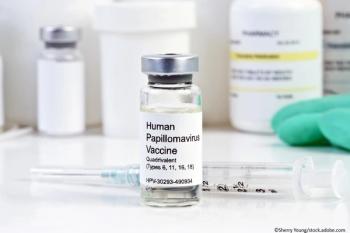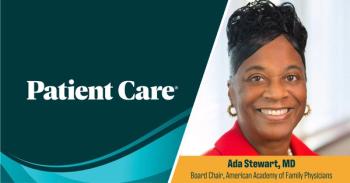
HPV Vaccine Also Guards Against Vulval and Vaginal Cancer
HELSINKI, Finland -- The human papillomavirus (HPV) vaccine Gardasil, developed to prevent cervical cancer, also appears to block pre-cancerous vulval and vaginal lesions, researchers said.
•Explain to interested patients that the study adds to the evidence for the efficacy of the HPV vaccine.
•Caution patients that this study, like many others done on the vaccine, was industry funded.
HELSINKI, Finland, May 17 -- The human papillomavirus (HPV) vaccine Gardasil, developed to prevent cervical cancer, also appears to block pre-cancerous vulval and vaginal lesions, researchers said.
Young women given the vaccine had 71% fewer high-grade vulval and vaginal lesions associated with HPV types 16 and 18 than those not vaccinated, regardless of exposure, reported Jorma Paavonen, M.D., of University Central Hospital here, and colleagues in the May 19 issue of The Lancet.
The industry-funded report adds to mounting evidence on the efficacy of the vaccine in preventing cancers.
Other groups reported in the May 10 issue of the New England Journal of Medicine that the vaccine was nearly 100% effective against cervical cancer-causing HPV types 16 and 18 at three years and also reduced the risk of throat cancer.
Dr. Paavonen and colleagues reported three-year follow-up of three randomized clinical trials. The studies included 18,174 women ages 16 to 26 from 24 countries across four continents.
These women were randomized to receive either placebo or the quadrivalent vaccine against HPV genotypes 6, 11, 16, and 18 at baseline and two and six months later. Placebo consisted of the aluminum hydroxyphosphate sulfate adjuvant used in the vaccine.
Participants also underwent repeated anogenital examination over two years. Biopsy and HPV type-specific DNA testing were done on any suspect lesions.
After a mean of three years of follow-up, the findings for high-grade vulval intraepithelial neoplasia (VIN2-3) and vaginal intraepithelial neoplasia (VaIN2-3) were:
•100% efficacy against lesions associated with HPV16 or HPV18 among susceptible women not previously exposed, the per-protocol population (no cases versus 15 in placebo group).
•71% efficacy against lesions associated with HPV16 or HPV18 in the intention-to-treat population, including women who were previously exposed to HPV (nine versus 31 cases).
•49% efficacy against lesions regardless of causal HPV type or exposure in the intention-to-treat population (27 versus 53 cases).
Five trials and two adolescent studies assessed safety, typically assessed with report card-style surveillance for 14 days after each vaccine or placebo injection.
Overall, only 0.1% of participants discontinued due to adverse events, and 0.06% reported a serious systemic adverse event judged to be vaccine related.
The most common vaccine-related adverse reactions were fever (10.3% versus 8.6% placebo), nausea (4.2% versus 4.1%), dizziness (2.8% versus 2.6%), injection-site pain (83.9% versus 75.4%), swelling (25.4% versus 15.8%), erythema (24.6% versus 18.4%), and pruritus (3.1% versus 2.8%).
The 71% efficacy rate was the best estimation "of the potential public-health benefit of an effective HPV vaccine," the investigators wrote.
However, while the trials included "a broad representation of women from developed and developing countries," they under-represented women who had had more than two sexual partners, those with a history of abnormal pap tests, and those with genital warts.
"From this perspective, this low-risk population of enrolled women might not be fully comparable to the general population," Dr. Paavonen and colleagues wrote.
Nonetheless, the results are encouraging because vulval cancer has been on the rise in younger women, almost always in association with HPV, the researchers said. In the analysis, 64% of cases of high-grade vulval intraepithelial neoplasia in the placebo group were due to HPV16.
"This trend is worrying because these cancers are not amenable to a screening program," they added.
For both vulval and vaginal cancers, precursors are often missed and treatment typically consists of mutilating surgery, they said, so prevention offers real benefit to women.
"However, the real benefits to individuals and society will need to be weighed against the costs in a formal economic assessment of the vaccine," the investigators concluded.
Other researchers also reported financial links with Merck and a variety of other companies, including Commonwealth Serum Laboratories, GlaxoSmithKline, Sanofi Pasteur, Digene, Frosst, and Roche Diagnostics. Several researchers are employees of Merck and hold stock or stock options in the company.
Newsletter
Enhance your clinical practice with the Patient Care newsletter, offering the latest evidence-based guidelines, diagnostic insights, and treatment strategies for primary care physicians.

































































































































